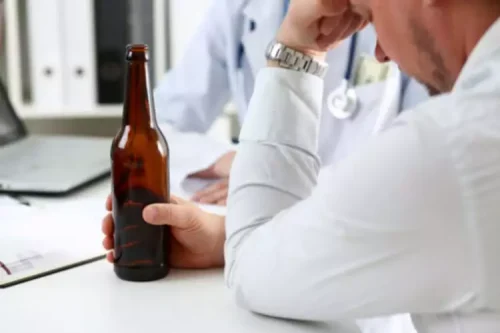
This information can be used by any organization to provide tailored recovery services to program participants. The vital signs include various evidence-based assessments that measure engagement (health outcomes and ratings related to relationships and cravings) and the many sources of recovery capital. The goal, Rutherford https://ecosoberhouse.com/ explains, is to construct a “recovery story” built from both qualitative and quantitative data for each individual seeking support. Recovery support resources can be found within recovery organizations at the local, state, and national levels. Today, there are hundreds of such organizations throughout the United States.
What Is the Process for Alcohol Rehab Like?
Research shows that positive social communication reduces anxiety, enhances communication skills, and acts as a protector against stress. Poor social support is linked to a higher risk of mental health conditions, making healthy connections crucial for emotional well-being during recovery. Peer support workers are people who have been successful in the recovery process who help others experiencing similar situations.
Additional treatment options

Some sources of support, like therapy or support groups, can also teach you various techniques to manage cravings and triggers. This is because recovering from addiction is physically and emotionally taxing—not just on you but on those who love you as well. While your support system can be great for your recovery journey, remember that they aren’t there to solve all your problems for you.
How does social support impact mental health in addiction recovery?
- Not only does this lessen the brain’s ability to resist intense urges to take drugs, but it can also affect the amount of pleasure a person receives from healthy activities like enjoying food or the company of others.
- Various barriers have made family involvement in services for substance use disorders the exception rather than the rule.
- But many people who have been sober for years continue to attend AA meetings.
- This system provides a ‘whole-person’ approach to substance use disorders like alcoholism.
- For all practical purposes with regard to drug use, the terms remission and recovery mean the same thing—a person regaining control of their life and reversing the disruptive effects of substance use on the brain and behavior.
- In these cases, don’t hesitate to take action to see that the person is promptly evaluated by a professional.
- Opening up to family and friends about addiction can be daunting, but these people are often the ones most willing to help you recover and stay sober.
Addiction Center explains that codependency is a pattern of interactions where someone tries to help a person manage their struggles with addiction, but in doing so, they also enable the person to keep using. Someone who has a relationship with a person with addiction may find themselves interacting with them in a manner known as codependency. Individual situations may range from codependency to abuse or violence.
- One of the most fundamental is assessment and treatment of any mental health conditions that underlie substance use (often called dual diagnosis).
- AA members typically attend face-to-face meetings where members share their experiences and discuss their progress through the steps.
- Overcoming addiction is a developmental process that can benefit from differing types of support at different stages of recovery.
- It’s hard to leave addiction behind without constructing a desirable future.
You want to be helpful and supportive, but you may feel at a loss as to what specific things you can do. Being in a close relationship with someone who is actively family support in addiction recovery using alcohol or other substances can be very challenging. But saying things like, “If you loved me, you’d quit,” is damaging behavior that almost never works.

Everyone deserves addiction treatment that works — including those in jail
They may know something about the person’s deepest aspirations and voice them as a reminder that can help the person remain on the road to recovery. And they can help plan healthy joint activities to ensure that there are good days. After finishing an addiction treatment program, it is highly recommended that a patient join a peer support group.

The first step is for a person to admit that they are powerless over alcohol, and that alcohol use has made their life unmanageable. When it comes to support systems specifically designed for those in recovery, there are several types and options to explore. This is why a healthy support system during recovery can make a world of difference.
Residential care may be of most value to those with an unstable or unhealthy home environment. Patients can be readily observed and monitored, an advantage for the early stages of medication management, if used. And life in residential treatment tends to be fairly regimented, in contrast to the often-chaotic life of active addiction.
